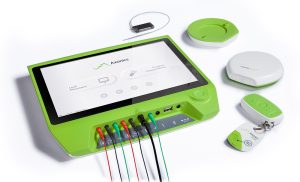Table of Contents
-
- Introduction
- What to Know About Medicare Coverage for Auto Accidents
- How to File a Claim for Medicare Auto Accident Coverage
- Understanding the Different Types of Medicare Auto Accident Coverage
- What to Do if Your Medicare Auto Accident Claim is Denied
- How to Maximize Your Medicare Auto Accident Coverage Benefits
- Conclusion
“Secure your future with Medicare Auto Accident Coverage – Peace of Mind for the Road Ahead!”
Introduction
Medicare auto accident coverage is an important part of the Medicare program. It provides coverage for medical expenses related to an auto accident, including hospital stays, doctor visits, and prescription drugs. It also covers some of the costs associated with rehabilitation and physical therapy. Medicare auto accident coverage is available to those who are enrolled in Medicare Part A and Part B. It is important to understand the details of this coverage and how it works in order to make sure you are getting the most out of your Medicare benefits. This article will provide an overview of Medicare auto accident coverage and how it works.
Find Medicare Plans in 3 Easy Steps
We can help get up to $0 monthly premium Medicare plans
What to Know About Medicare Coverage for Auto Accidents
Medicare coverage for auto accidents can be a confusing topic for many people. It is important to understand the basics of Medicare coverage for auto accidents in order to make sure you are adequately covered in the event of an accident.
First, it is important to understand that Medicare does not provide coverage for auto accidents. Medicare is a health insurance program that provides coverage for medical expenses related to illness or injury. It does not provide coverage for auto accidents.
However, Medicare may provide coverage for medical expenses related to an auto accident if the accident is considered a medical emergency. In order for Medicare to provide coverage, the accident must meet certain criteria. The accident must be serious enough to require immediate medical attention, and the medical expenses must be related to the accident.
In addition, Medicare may provide coverage for medical expenses related to an auto accident if the accident was caused by a third party. In this case, Medicare may cover the medical expenses if the third party is found to be at fault for the accident.
Finally, it is important to note that Medicare does not provide coverage for any property damage or liability expenses related to an auto accident. These expenses must be covered by other insurance policies.
It is important to understand the basics of Medicare coverage for auto accidents in order to make sure you are adequately covered in the event of an accident. Knowing the criteria for coverage and what is not covered can help you make sure you are properly protected.
How to File a Claim for Medicare Auto Accident Coverage
If you have been involved in an auto accident and you are a Medicare beneficiary, you may be eligible for coverage of your medical expenses. To file a claim for Medicare auto accident coverage, you must follow certain steps.
First, you must contact your Medicare provider to determine if you are eligible for coverage. You will need to provide information about the accident, including the date, time, and location of the accident, as well as the names of any other drivers involved. You will also need to provide information about any medical treatment you received as a result of the accident.
Once you have determined that you are eligible for coverage, you will need to complete a Medicare claim form. This form can be obtained from your Medicare provider or from the Centers for Medicare & Medicaid Services (CMS) website. The form will ask for information about the accident, including the date, time, and location of the accident, as well as the names of any other drivers involved. You will also need to provide information about any medical treatment you received as a result of the accident.
Once you have completed the claim form, you will need to submit it to your Medicare provider. Your provider will review the form and determine if you are eligible for coverage. If you are eligible, your provider will provide you with a claim number and instructions on how to submit your claim.
Once your claim has been approved, you will need to submit any bills or receipts related to the accident to your Medicare provider. Your provider will then process the claim and reimburse you for any eligible expenses.
It is important to note that Medicare auto accident coverage is limited and may not cover all of your medical expenses. If you have any questions about your coverage, you should contact your Medicare provider for more information.
Understanding the Different Types of Medicare Auto Accident Coverage
Medicare is a federal health insurance program that provides coverage for medical expenses for individuals who are 65 years of age or older, as well as certain younger individuals with disabilities. Medicare also provides coverage for auto accident-related medical expenses, but the coverage is limited. It is important to understand the different types of Medicare auto accident coverage available in order to make sure you are adequately protected.
Part A Coverage
Part A of Medicare covers hospital stays, skilled nursing facility care, hospice care, and some home health care. If you are injured in an auto accident and require any of these services, Part A will cover the costs. However, Part A does not cover the cost of ambulance services, so you will need to purchase additional coverage if you want to be covered for ambulance services.
Part B Coverage
Part B of Medicare covers doctor visits, outpatient care, medical equipment, and some home health care. If you are injured in an auto accident and require any of these services, Part B will cover the costs. Part B also covers the cost of ambulance services, so you will not need to purchase additional coverage for this.
Part C Coverage
Part C of Medicare, also known as Medicare Advantage, is a private health insurance plan that is offered by private insurance companies. These plans provide coverage for all of the services covered by Parts A and B, as well as additional services such as vision and dental care. If you are injured in an auto accident and require any of these services, Part C will cover the costs.
Part D Coverage
Part D of Medicare covers prescription drugs. If you are injured in an auto accident and require prescription drugs, Part D will cover the costs.
It is important to understand the different types of Medicare auto accident coverage available in order to make sure you are adequately protected. Be sure to review your coverage carefully and contact your insurance provider if you have any questions.
Find Medicare Plans in 3 Easy Steps
We can help get up to $0 monthly premium Medicare plans
What to Do if Your Medicare Auto Accident Claim is Denied
If your Medicare auto accident claim has been denied, it is important to take action quickly. There are several steps you can take to appeal the decision and get the coverage you need.
First, review the denial letter from Medicare to determine the reason for the denial. Common reasons for denial include lack of medical necessity, incorrect coding, or insufficient documentation. Once you have identified the reason for the denial, you can begin to address the issue.
Next, gather any additional documentation that may be needed to support your claim. This may include medical records, bills, and other evidence of your injury. Make sure to include any information that may help to prove the medical necessity of the services you are requesting.
Once you have gathered the necessary documentation, you can submit an appeal to Medicare. You can submit an appeal online or by mail. Be sure to include all of the documentation you have gathered and explain why you believe the claim should be approved.
Finally, if your appeal is denied, you may be able to file a complaint with the Medicare Beneficiary Ombudsman. The Ombudsman can help to resolve disputes between Medicare and its beneficiaries.
By following these steps, you can ensure that your Medicare auto accident claim is properly reviewed and that you receive the coverage you need.
How to Maximize Your Medicare Auto Accident Coverage Benefits
If you have been injured in an auto accident and are covered by Medicare, it is important to understand how to maximize your Medicare coverage benefits. This article will provide an overview of the steps you should take to ensure that you receive the full benefits of your Medicare coverage.
First, it is important to understand the basics of Medicare coverage for auto accidents. Medicare Part A covers hospital stays, while Medicare Part B covers doctor visits and other medical services. Medicare Part C and Part D are optional plans that provide additional coverage for prescription drugs and other medical services.
Second, it is important to understand the types of auto accident-related expenses that are covered by Medicare. Generally, Medicare will cover medical expenses related to the accident, such as hospital stays, doctor visits, and prescription drugs. However, Medicare will not cover any expenses related to property damage or lost wages.
Third, it is important to understand the process for filing a claim with Medicare. You will need to provide documentation of the accident, such as a police report or medical records, as well as proof of your Medicare coverage. You will also need to submit a claim form to Medicare.
Fourth, it is important to understand the time limits for filing a claim with Medicare. Generally, you must file a claim within one year of the date of the accident. If you fail to file a claim within this time frame, you may be denied coverage.
Finally, it is important to understand the appeals process if your claim is denied. You can appeal the decision by submitting additional documentation or requesting a hearing.
By understanding the basics of Medicare coverage for auto accidents and taking the necessary steps to maximize your coverage benefits, you can ensure that you receive the full benefits of your Medicare coverage.
Find Medicare Plans in 3 Easy Steps
We can help get up to $0 monthly premium Medicare plans
Conclusion
In conclusion, Medicare Auto Accident Coverage can be a great way to help cover the costs of medical care after an auto accident. It is important to understand the coverage limits and to make sure that you are adequately covered for any potential medical expenses. It is also important to remember that Medicare does not cover all medical expenses related to an auto accident, so it is important to check with your insurance provider to make sure that you are adequately covered.





